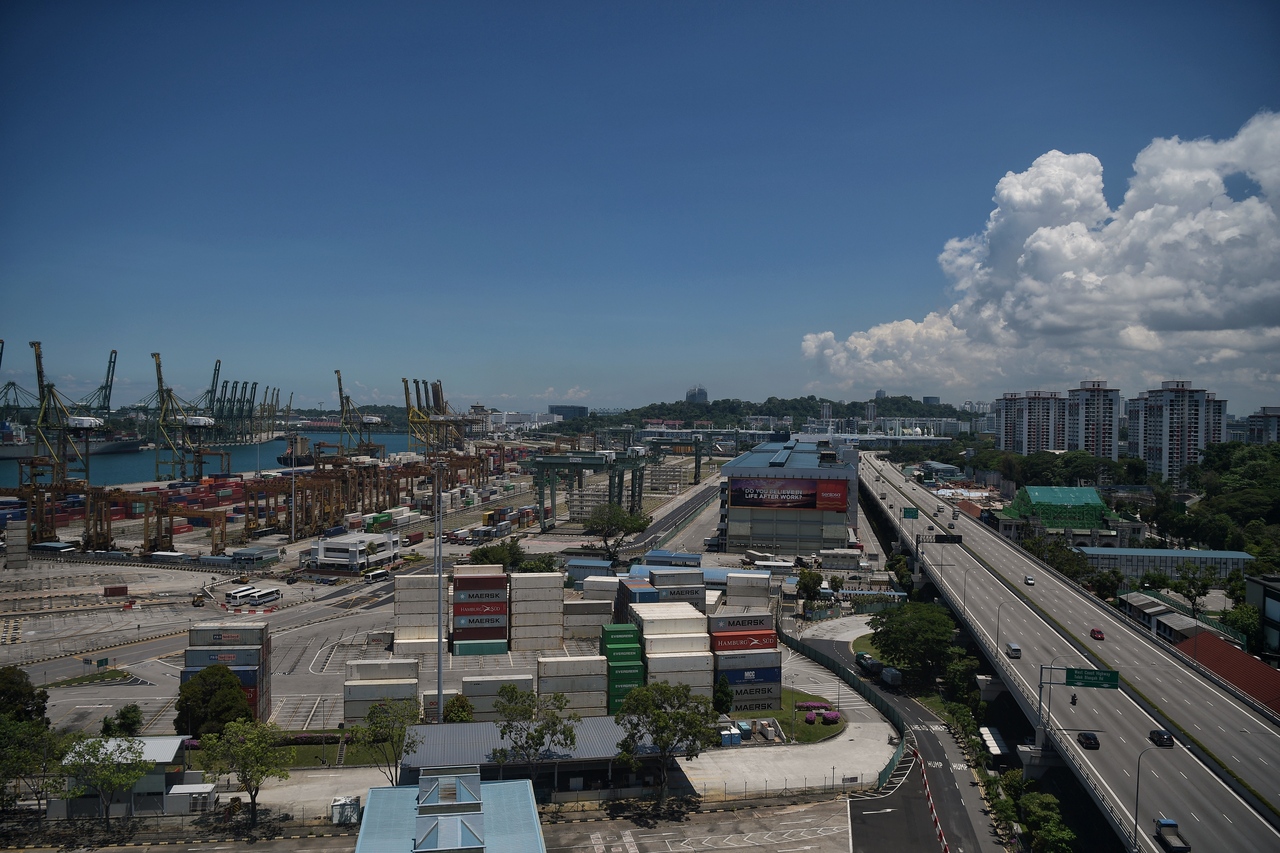Parliament: Supply chain shifts due to Covid-19 will impact economy but also present opportunities, says Chan Chun Sing
Sign up now: Get ST's newsletters delivered to your inbox

It is likely that countries will look to source more goods from its regional neighbours.
ST PHOTO: KUA CHEE SIONG
Fabian Koh
Follow topic:
SINGAPORE - The Covid-19 pandemic is accelerating shifts in the global supply chain, Minister for Trade and Industry Chan Chun Sing said on Tuesday (May 26), but he added that the changes could present opportunities to Singapore and countries in the region.
Speaking in Parliament, Mr Chan said that while there is no telling how supply chains will eventually be configured, it is likely that countries will look to source more goods from its regional neighbours to ensure "greater resilience against future supply disruptions". He said this move to a more regional supply chain was already under way before the pandemic struck, thanks in part to brewing global trade tensions.
And while the shift would have a short-term impact on Singapore and the global economy, he said there will be opportunities in the new environment.
"While some concern amid this flux is understandable, we should not despair. Such shifts are not a zero-sum game," he said. "Even as countries like the US and Japan diversify their production from China, so too are Chinese companies going international and moving more production to South-east Asia. This will present new opportunities for regional economies like ours, which will in turn deepen the economic links between South-east Asia and these countries."
He added: "Our posture, therefore, must be to foster greater regional integration and global interdependence rather than to try and maximise domestic production, which may not be the most efficient nor sustainable."
MTI had earlier on Tuesday downgraded Singapore's GDP forecast for the year. It projected the economy would shrink between 7 per cent and 4 per cent this year, revising an initial prediction of a contraction between 4 per and 1 per cent.
Mr Chan was responding to questions from Mr Desmond Choo (Tampines GRC), who had asked about how changes in supply chains would impact Singapore, as well as how the Government was helping companies and workers prepare.
The Trade and Industry Minister noted that Singapore was also well-placed to tap some of the opportunities that emerge.
"Many more companies and many more countries are now beginning to appreciate the need to balance efficiency with resilience. When they look at resilience, then they are looking at not just the lowest cost competitor," he said. "They are also looking for places where they can put their operations, where their intellectual property can be protected, their talent can come together and perform production design and services.
"So these are all opportunities that play to Singapore's strength as a trusted hub, as a safe harbour for talent and intellectual property," he said.
On actions the Government is taking, Mr Chan said it is continuing to boost connectivity to the region and upholding Singapore's status as a financial and logistical hub. For example, it is working with other Asean countries to ensure the continued supply of essential goods, and is committed to signing the Regional Comprehensive Economic Partnership (RCEP) agreement this year. The RCEP is set to be the world's largest trade pact and involves all 10 Asean nations as well as Australia, China, Japan, New Zealand and South Korea.
The Government is also helping local firms tap research and development capabilities, such as leveraging digital platforms to grow their international reach.
"We have also introduced enhanced training and reskilling programmes to prepare our workers and companies such that they can capitalise on the upswing when the economy recovers."
Responding to Mr Choo's follow-up question on the impact of the pandemic on longer-term investments like the Tuas mega port, Mr Chan said he is optimistic Singapore will continue to play a significant role in the regional and global logistics chain.
He said the drop in port volume in recent weeks is due to short-term forces, such as the global fall in demand from lockdowns in various countries.
"From a longer-term perspective, ceteris paribus, all else being equal, if the demand remains at the same level, a more regional supply chain network actually can work to Singapore's advantage because we are a trade hub and a trade port," said Mr Chan.

